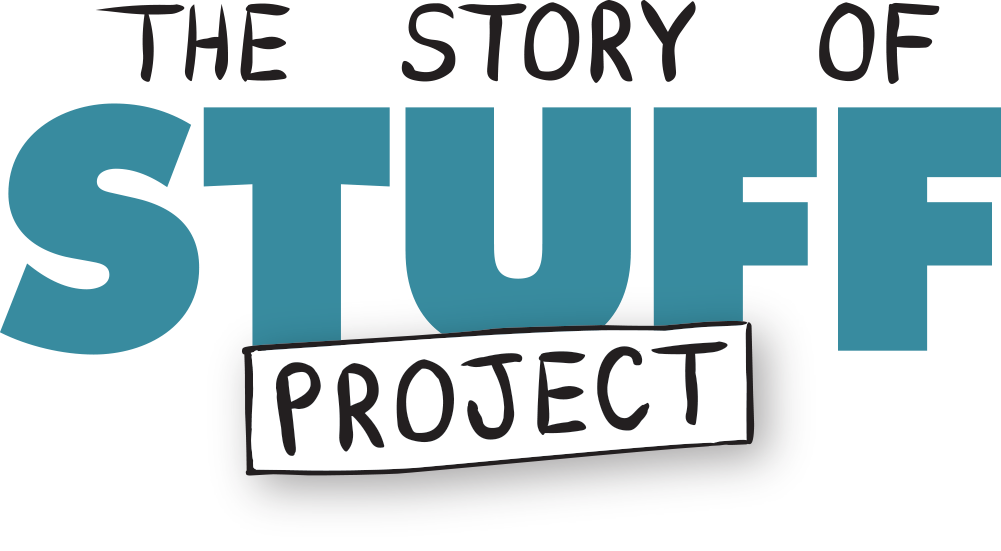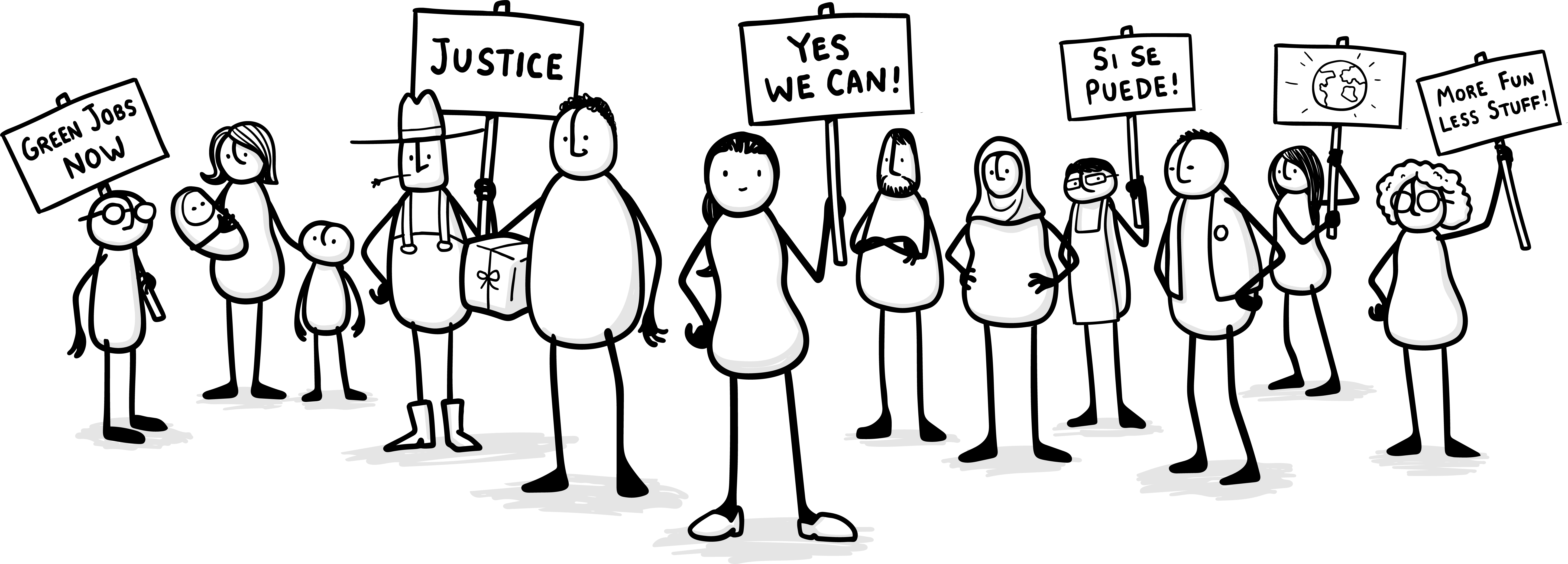Unbottle Water:
Unbottle The Great Lakes
The Great Lakes are among the largest reserves of freshwater on the planet. We’re working with local grassroots groups to ensure that it remains in public hands.
Why This Fight Matters
The citizens from two very different Michigan communities— small town Evart and industrial Flint— have found their futures inextricably linked by a threat to the one thing that all life requires: water. In Flint, thousands were exposed to lead-polluted water following cost-cutting measures by the city. But just 128 miles away, in the town of Evart, Nestlé Waters North America operates a bottling plant where they are allowed to extract millions of gallons of clean water to bottle and sell for profit. These communities illustrate the problems that come when governments run critical functions like water systems as if they were a business. We believe that water is for people, not profit – and that citizens’ access to clean drinking water should come first.
Watch
Watch “A Tale of Two Cities,” our short documentary about the water crises in Flint and Evart:
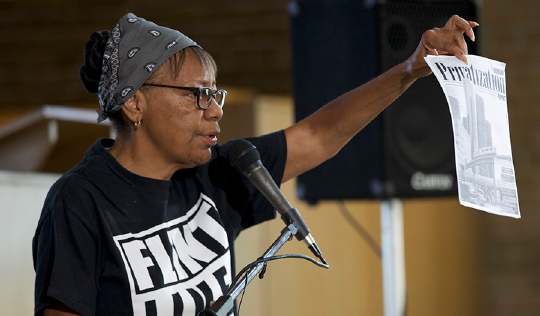
Take Action!
Join our campaigns to Unbottle Water in the Great Lakes, San Bernardino, and beyond!
The Story So Far
We created the short documentary A Tale of Two Cities in collaboration with WILA members in order to tell the story of water manipulation and mismanagement in Michigan. The documentary compares the rural town Evart, where Nestlé bottles fresh water, and the city of Flint, known for the structural mismanagement and racism that has deprived thousands of residents of clean water since 2014. We’re working to challenge the narrative that big corporations and water privatization are the answer to water management challenges.
The Swiss multinational Nestlé has been facing increasing scrutiny in Michigan. This U.S. state on the Canadian border is part of the Great Lakes region, which houses one of the largest surface freshwater reserves on the planet. Outside of the small town of Evart, a mere 128 miles from Flint, a city plagued by unsafe water since 2014, Nestlé is attempting to increase how much spring water it is taking for water bottling.
Nestlé submitted an application with Michigan’s Department of Environmental Quality (MDEQ) in 2016 to increase pumping from 250 to 400 gallons per minute at its White Pine Springs well No. 101 in Osceola County. Since then, local advocacy groups have been fighting back to try and keep their water in the ground and out of Nestlé’s bottles.
Nestlé has a long history of seeking sources for bottled water in the Great Lakes region. The company wanted to establish two well sites in the neighboring state of Wisconsin but the people in New Haven and Newport saw that they were on the receiving end of a raw deal. Nestlé ultimately got the boot thanks to citizen action and a lawsuit. And that’s about the time Nestlé successfully approached city and county officials in Osceola and Mecosta Counties, Michigan.
Nestlé’s mode of operation is the same no matter where it goes: the corporation targets small, rural communities, promises that no one will see the effects of its water take, and claims to bring jobs. In spite of Nestlé’s promises, the community does see the effects of Nestlé’s water grab, and they don’t like what they are seeing. Residents in these areas have testified that environmental impacts have resulted in diminished fish populations, lowered stream and river levels, dried up wetlands, and destruction of aquatic species and habitats.
In April 2018, Michigan’s Department of Environmental Quality (MDEQ) approved Nestlé’s permit application to withdraw 450 gallons per minute from a well outside of Evart, Michigan.
During the open comment period, 80,000 state residents said ‘No’ to multinational Nestlé’s corporate water grab and the environmental damage that is drying up rivers and defying common sense. Despite the overwhelming opposition to this permit, the MDEQ informed Michigan residents that their experiences, data and concerns don’t matter. Instead, the MDEQ sided with the 75 public comments in favor of the permit.
The MDEQ chose to rule in favor for Nestlé Waters which pays the state $200 for a yearly permit to bottle water from depleted rivers and streams. This corporation earned $343 million from Michigan’s water in 2016 alone.
Nestlé and its Ice Mountain brand targets small communities, like Evart in Osceola County and Stanwood in Mecosta County, with promises like more jobs and amenities, but there are few community or statewide benefits. Nestlé sucks out over one million gallons of groundwater that is taken from streams and wetlands each day to fill more than 3,000 bottles of water per minute.
Our partner and WILA member Michigan Citizens for Water Conservation (MCWC) has legally contested the DEQ’s permit. The Grand Traverse Band of Ottawa and Chippewa Indians filed a challenge on the same day as MCWC, and the cases were joined. Under the 1836 Treaty of Washington, when the signatories ceded 14 million acres so Michigan could become a state, the tribes retained rights to fish, hunt, and gather plants which are property rights under the US Constitution. The State is obligated to protect those property rights and the resources of the Muskegon River Watershed are among them. The cases were heard in May 2019. We await a final ruling as we continue to push for clean water in Flint.
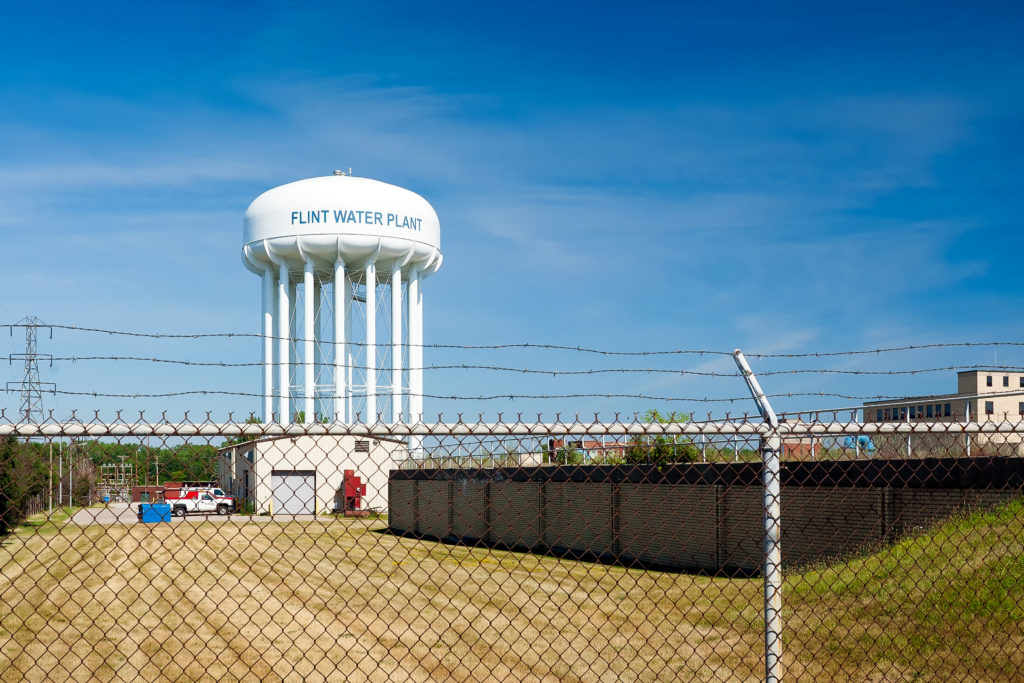
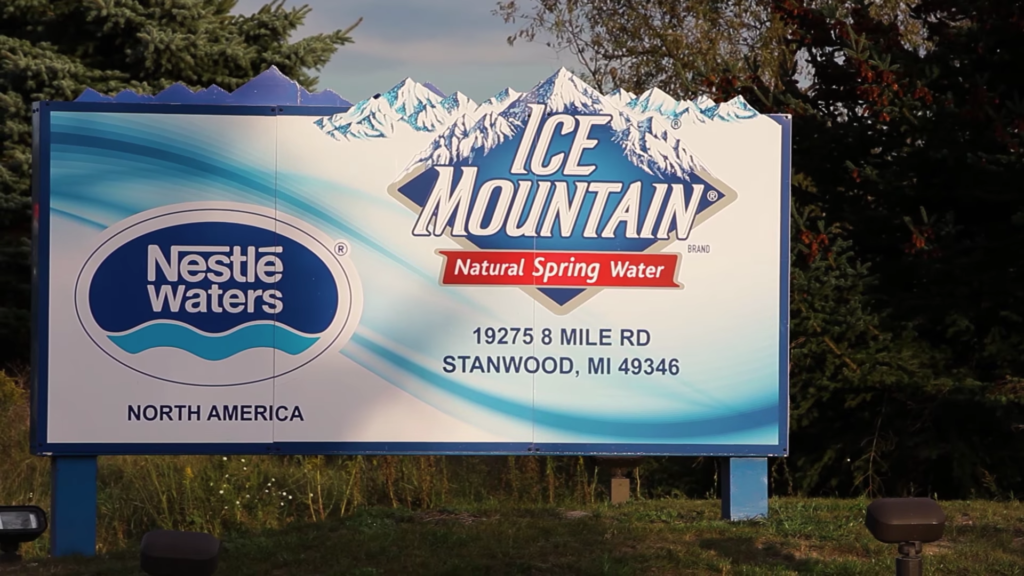
Local Partners
We partner with the Water Is Life Alliance (WILA) to advocate for the protection of freshwater resources in the Great Lakes. We support the Alliance’s mission:
“The Water is Life Alliance works to protect the Great Lakes watershed as a shared commons and sacred gift to all life. Through unity and collaboration, we are communities resisting corporate bottled water extraction and conversion of water use or service for sale as bottled water. We are communities demanding access to safe, protected, accountable, and affordable drinking water and we create effective and emergent conditions for community-led solutions. We believe that water is for life, not for profit. We desire water justice across and between all living water bodies for this generation and all those that follow.”
